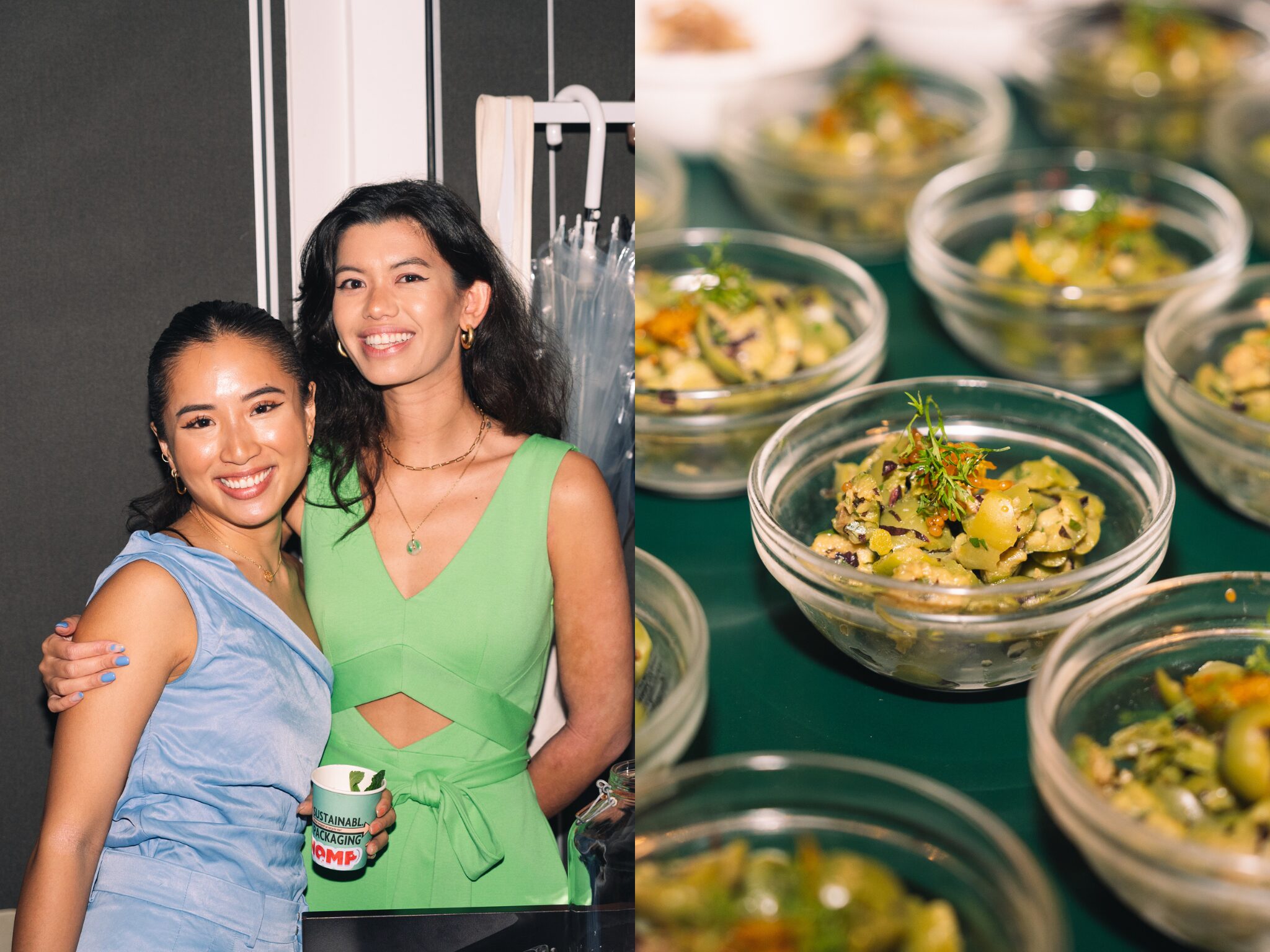CHOMP & TMS Founders Carla Martinesi & Krystal Lai on Tackling Food Waste in Hong Kong
7 Mins Read
Two food waste warriors let us in on their efforts to turn surplus food into a sustainable dining experience in a city that throws out over a million tonnes of food each year.
Hong Kong may be known as Asia’s World City, a melting pot of cultures with great food and a penchant for elevated dining experiences, but the city – like most others in the world – has a major food waste problem.
Every day, 3,600 tonnes of food and 13 million rice bowls end up in the city’s landfills – estimates suggest that 30-40% of Hong Kong’s municipal waste comprises food waste. But only 4% of all this waste is recycled, which doesn’t bode well for the city’s climate action plan, which aims to reduce emissions by 26-30% by the end of the decade.
It also doesn’t bode well for Hong Kong’s food insecurity problem, which affects a third of all its citizens. Over 7.3 million people live in the city, and eat an average of 2.85kg of food each day. Roughly calculated, the amount of food that goes to waste could feed nearly 1.3 million of its residents – that’s almost equivalent to all Hong Kongers living under the poverty line.
Tackling food waste has multipronged benefits for the city, and that’s exactly what The Rescued Feast, a sustainable dining experience that made use of surplus food destined for waste, sought to highlight on April 25.
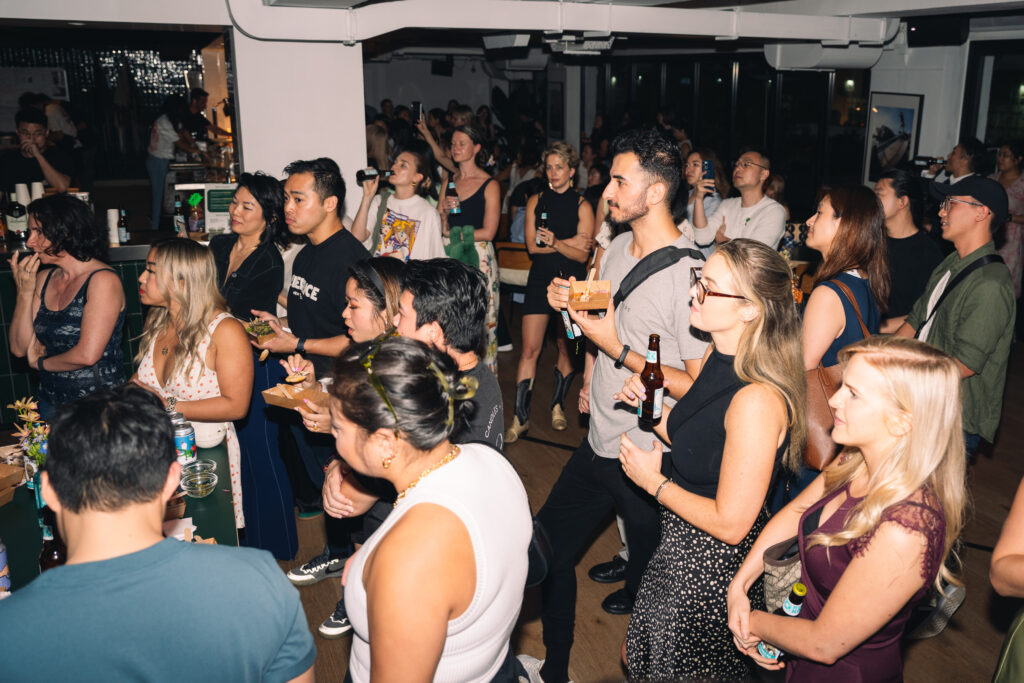
Organised by food-saving app CHOMP, media company TMS and charity More Good, the event rescued food from CHOMP’s F&B vendors, which were transformed into light bites led by More Good head chef Mike Silva. It showcased how food scraps can be turned into nutritious meals, raising awareness about Hong Kong’s food waste problem.
With nearly 200 attendees, The Rescued Feast managed to save 230kg of food, equating to about 460k for CO2e. The success means it is now the first of a series. After the event, Green Queen founding editor Sonalie Figueiras – who attended the dinner – spoke to CHOMP founder and CEO Carla Martinesi and TMS founder Krystal Lai about the initiative, their goals, and the importance of fighting food waste in Hong Kong.
This interview has been lightly edited for clarity and concision.
Sonalie Figueiras: How did you both come together to create this event?
Krystal Lai: It’s been a long time in the making. About a year ago, Carla approached me with the idea of hosting an event using food waste and scraps. We were both super excited by the potential to transform these into a high-end event that could shift perceptions about food waste. Having volunteered with More Good several times, I was familiar with their mission, space, and team, which led us to the natural conclusion: why not host the event right here?
When we first reached out to the founders of More Good, their excitement matched ours. Carla and I feel incredibly fortunate that the event was such a success, and we’re excited to turn it into a series.
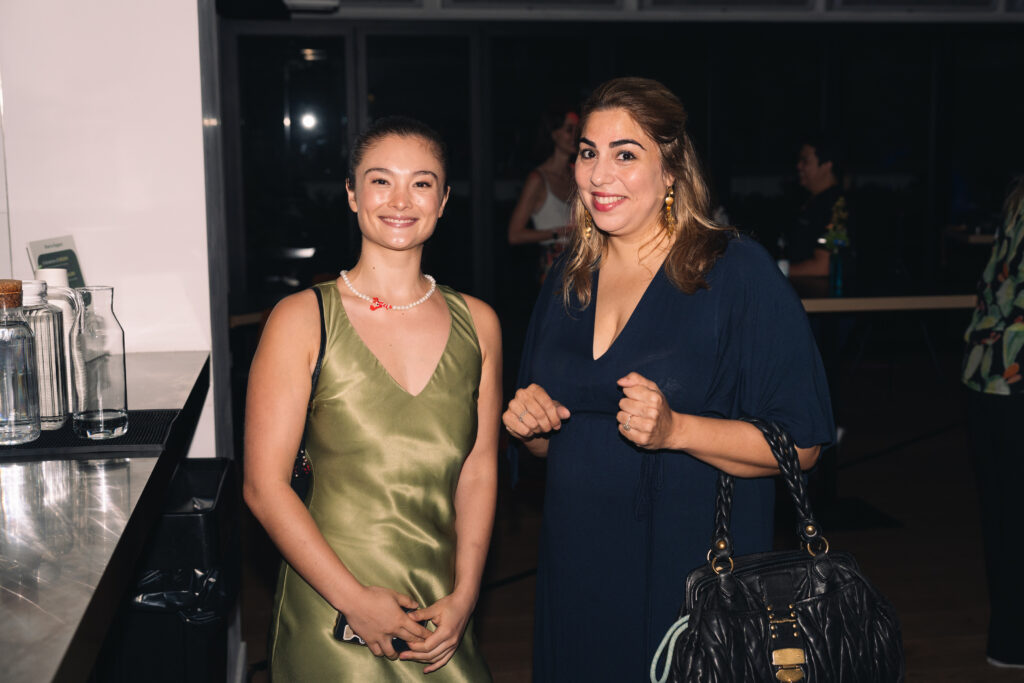
SF: Where did the rescued food come from? Why was it going to be wasted?
Carla Martinese: The food scraps were collected from various CHOMP Partners & Friends (such as LSG Sky Chefs, Airside, Bon-Eat-O, Bones & Blades, PermaClub, Slowood and Agrician). Like many F&B businesses, there are all sorts of reasons for food to be wasted, and [it’s] never intentional. Reasons include: bad weather (thus fewer customers), weather-damaged produce, miscalculations, inability to sell before the expiration date, and some of it was the scrapped ends of fruits and vegetables like pineapple peels.
SF: Can you share more about More Food, the location of the event?
CM: More Good is an F&B charity based in Hong Kong that serves hundreds of freshly cooked meals to the elderly, homeless and refugee communities across Hong Kong. Its beneficiaries include Impact HK and Refugee Union. Their location in Chai Wan hosts events to raise money for charities and also doubles as a soup kitchen space where people can volunteer their time to make food for the needy.
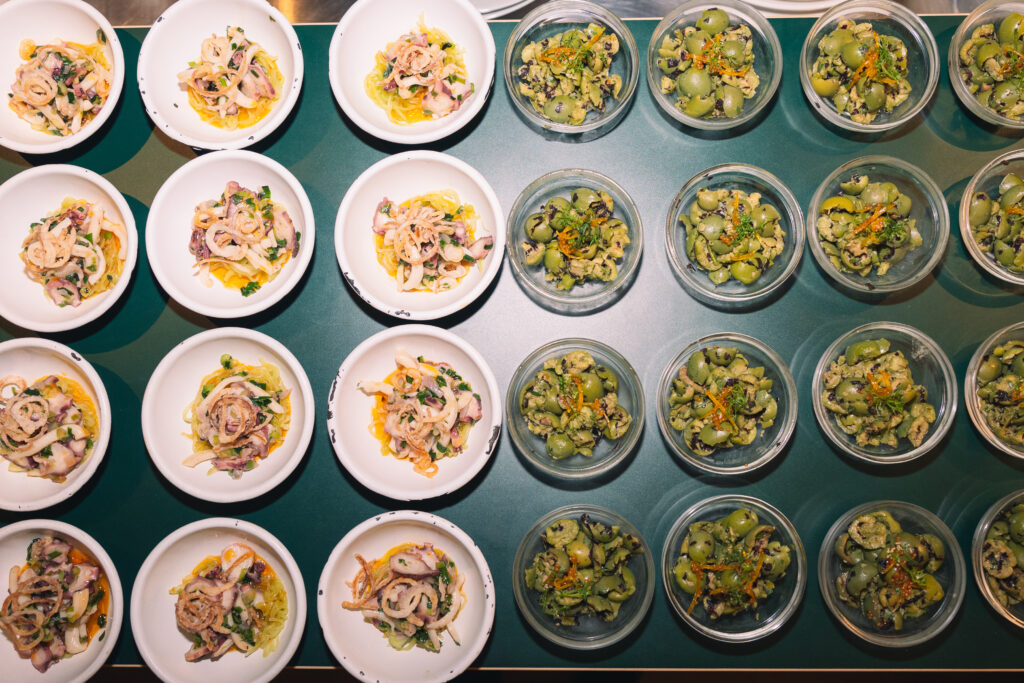
SF: Who were some of your favourite partners for this event? Why did you choose to work with them?
CM: With so many sponsors involved, it’s hard to choose. A big shout-out has to go to our food scrap vendors who graciously donated their clean scraps for us to reuse into another meal. We’d have to say our favourite partner had to be More Good.
SF: What worked and what didn’t?
CM: I think everything worked the way we hoped it would, we ran this as a pilot to test if the concept could even work, and it did! In terms of what didn’t work (or what we can improve) is coordinating with restaurants to collect food scraps for the event. Every good dish should involve some sort of protein element and it was really difficult to source that as a scrap. Luckily, on the last day, we had Bon-Eat-O come through with their seafood protein. That’s something we’d have to focus more on next time.
SF: How can you ensure The Rescued Feast’s guests will continue to stay motivated to fight food waste beyond the dinner?
CM: We hope this dinner served as a reminder to guests that food can be given a second life, that sometimes it’s not just a scrap bit of food that can be thrown away. If you’re choosing to eat out, consider ordering less or taking food home to cook into another dish the next day. Research, learn about your food and get creative. Or even easier, use the CHOMP app to save food from restaurants from going to waste instead.

SF: In a perfect world, what’s your goal with this event? Do you want to do more?
CM: Our goal was to bring more awareness to Hong Kong’s massive food waste problem. With the MSW law [which will charge sectors based on the amount of municipal waste they create] getting postponed to August, garbage has been a spotlighted story across the city. Unfortunately, a lot of the focus has been on plastic with the new ban, but the reality is food waste makes up 40% of the landfill, which is more than any other item – and not much has been done to combat this.
Our aim is to make this event a series and spotlight local vendors, and the food-saving mission.
SF: How aware are people in Hong Kong about food waste?
CM: Unfortunately, not as much as we’d like them to be. With no consequence to waste food, it’s not in a lot of people’s minds. It’s been a struggle to educate on the environmental consequences of food waste on the planet. We’ve seen a shift in mentality over the years through CHOMP, especially in schools and individuals, but there’s still a long way to go.
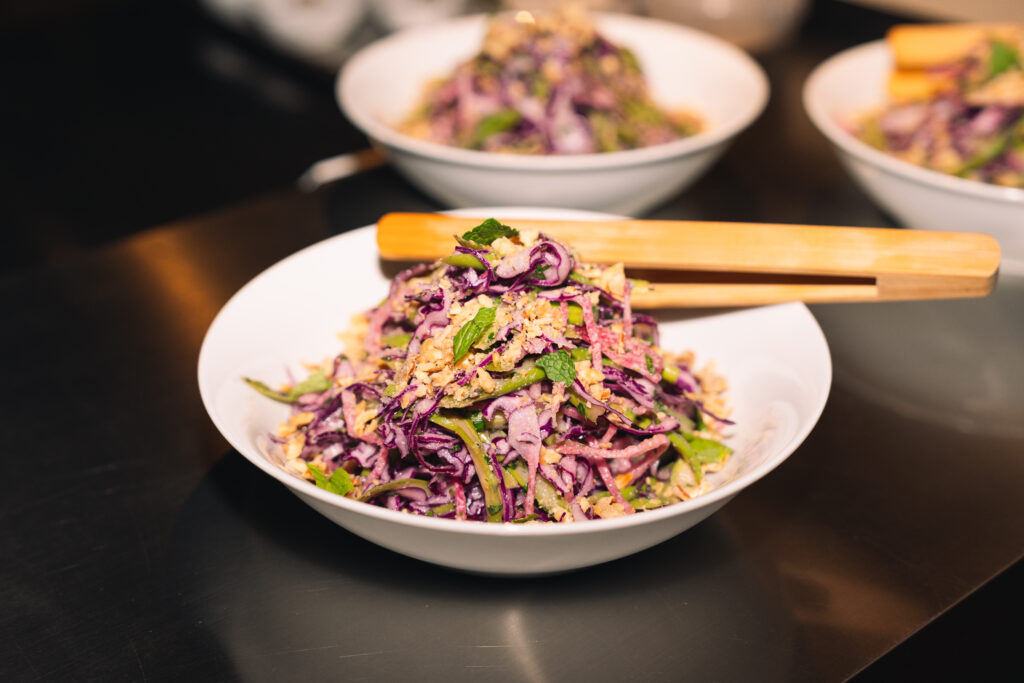
SF: Why should people care about food waste in Hong Kong?
KL: I think it’s important on numerous fronts. Environmentally, food waste contributes further to greenhouse gas emissions, specifically methane and our environmental footprint. It’s also economic and social, though. Hong Kong spends a lot of money on food that goes to waste, which just means that resources and capital are being tied up on redundant processes and products that aren’t used or consumed. Think about the produce, the delivery, and the processing of the waste.
This is why I think the MSW law is a big step in the right direction. As waste is – for most – such an “out of sight, out of mind” problem, this will really force businesses and individuals to think twice about consumption, including food consumption.
Lastly – and this is something that I feel quite passionate about – it’s also about social equity. In a city like Hong Kong where rent is sky-high and poverty and food insecurity exist, it feels paradoxical to have significantly high levels of food waste when you have people a lot closer than you probably realise who need help.
SF: What does the Hong Kong government need to do to help fight food waste better?
CM: I think improving the public education on the state of the planet and how individuals can affect change too. Support local businesses who are pushing to do good for the city like CHOMP and More Good. Work with local stakeholders such as farmers, food producers and retailers to develop solutions to reduce food waste on every level.


